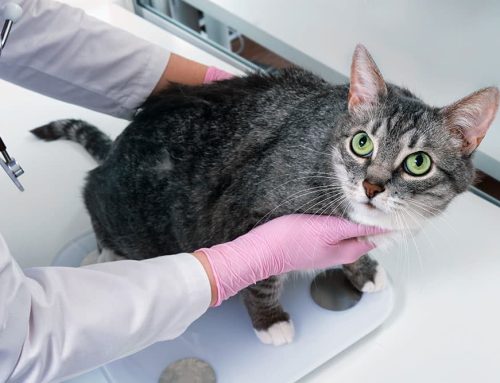Your pet’s health is a number one priority, and you likely focus on their daily care and happiness. Health encompasses many aspects of pets’ lives, from behavior and training to veterinary care and safety measures. You can encourage a long and vital life by taking a holistic approach to your pet’s well-being. Our Mobile Cat & Dog Vet team provides tips to encourage physical health, longevity, and happiness for your four-legged friend.
1. Feed your pet a balanced diet
A balanced and nutritious diet is fundamental to your pet’s health and energy level. Choose a high-quality pet food appropriate for your pet’s species, age, size, and health status. For example, cats are carnivores who require a diet high in animal protein and certain amino acids, while dogs thrive on a more varied diet. Discuss nutrition with our Mobile Cat & Dog Vet team for specific recommendations.
Avoid too many treats or human foods, which can lead to digestive problems and obesity in pets. Regularly check your pet’s weight and body condition score and adjust their diet and daily feeding regimen as needed.
2. Maintain your pet’s daily exercise regimen
Regular exercise and activities are important for your pet’s physical and emotional health. Follow this routine:
- Daily walks — Dogs, in particular, benefit from daily walks or runs. The exercise length and intensity should depend on weather conditions and your dog’s age, breed, and energy level.
- Playtime — Engage in daily interactive play with your pet. Cats enjoy toys that mimic prey, such as laser pointers or feather wands, while dogs often enjoy fetch or tug-of-war games.
- Mental stimulation — Mental enrichment involves toys and activities to challenge your pet’s mind. Cats enjoy puzzle feeders, climbing structures, and scratching posts. Dogs like agility or obedience training, new walking paths, nosework, or hide-and-seek games.
3. Keep your pet well-groomed
Grooming not only keeps your pet looking good but also is important for their health. Regular bathing and brushing can help you identify potential parasites, skin conditions, or any coat health issues. Brushing also prevents matting and reduces shedding.
Trim your pet’s nails at least once a month to prevent discomfort and injury. Ear cleaning with a pet-formulated cleanser can help prevent infections. Never use ear cleansers designed for humans.
4. Maintain your pet’s oral health
Dental health is an often overlooked aspect of pet health, but is crucial for overall well-being. Without ongoing dental care, such as toothbrushing and veterinary dental cleanings, painful teeth or periodontal disease may develop, conditions that can potentially shorten your pet’s life. Promote your furry friend’s dental health through:
- Brushing — Brush your pet’s teeth a minimum of several times a week, but preferably daily, with a pet-safe toothpaste to prevent plaque buildup and dental disease.
- Dental chews — Provide dental chews or toys designed to clean your pet’s teeth and freshen their breath.
- Professional cleanings—Schedule professional dental cleanings with our Mobile Cat & Dog Vet staff. Professional cleanings are the most effective way to evaluate your pet’s teeth and thoroughly remove plaque and tartar.
5. Offer your pet plenty of water
Hydration helps prevent heatstroke and promotes healthy organ function. Clean and refill your pet’s water bowls daily. Some pets, especially cats, are finicky about their water and prefer moving to still water. Consider a pet water fountain to encourage drinking, or add ice cubes or tuna water to your pet’s bowl.
6. Provide a safe environment through pet-proofing
Creating a safe and comfortable living environment is essential for your pet’s health. To pet-proof your home, remove or secure potential hazards such as toxic plants, chemicals, or small objects that could be swallowed. Use child-proof latches on cabinets containing food or poisonous chemicals. Secure gates and fences, closing holes or gaps where your four-legged friend could escape or wildlife could enter.
7. Use training and socialization techniques for your pet
Proper training and socialization contribute to your pet’s mental health, safety, and behavior. Teach your dog basic commands, such as “Sit,” “Stay,” and “Come.” Expose them to different environments, people, and healthy, well-behaved pets to reduce anxiety and promote positive behavior. Use positive reinforcement techniques, such as treats and praise, to encourage good behavior and when they follow basic commands. Training and socialization can prolong your pet’s life by preventing stress, accidents, injuries, and escape.
8. Schedule your pet’s wellness exams

Regular wellness visits emphasize preventive care and early detection of health issues. During your pet’s exams, their health is evaluated to catch potential problems early. Core vaccinations and parasite preventives are administered to protect your pet from infectious diseases and parasitic illnesses caused by fleas, ticks, and mosquitoes, and laboratory tests are conducted as needed. Tests and exams are vital to fully understand your furry friend’s nose-to-tail health.
By following our guidelines, you can help your pet stay in optimal condition and enjoy a healthy, happy, and long life by your side. Now, that’s something to wag about!
Contact our Mobile Cat & Dog Vet team if your pet needs geriatric support or palliative care.








Leave A Comment